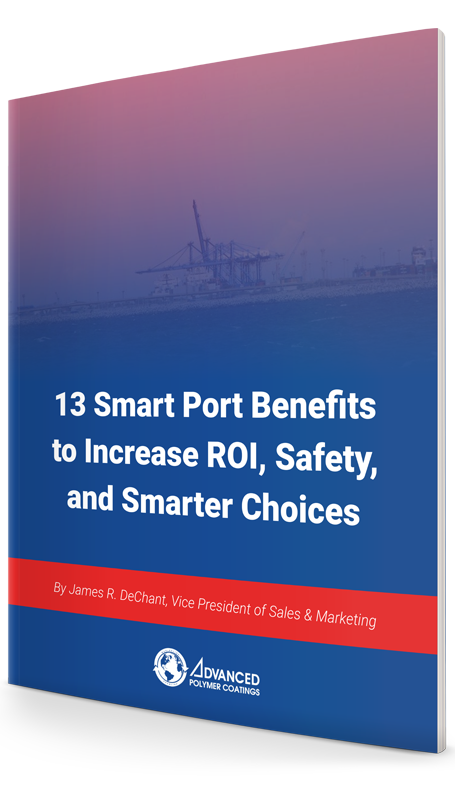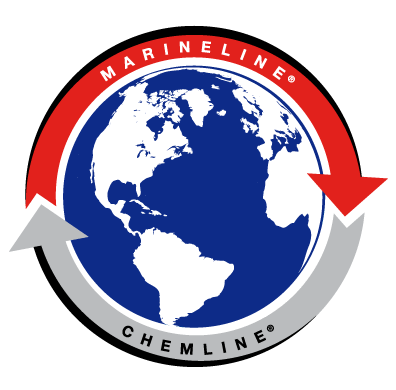Nearly every industry has been impacted negatively, and the maritime industry is no exception.
According to Chair of the House Committee on Transportation and Infrastructure Peter DeFazio (D-OR), “the internationally trading fleet, for instance, has shrunk to a paltry 85 vessels and carries less than 1.5% of the goods entering and exiting our [US] ports.”
Maritime shipping is the backbone of the global economy. It makes up for over 90 percent of cross-border trade. The industry itself faces pressure to innovate to make shipping operations greener, more efficient, and cheaper, all while battling the unprecedented challenges resulting from COVID-19.
APC understands how these changes due to COVID-19 are impacting the maritime industry. As a marine polymer coatings provider to protect your assets, we’re committed to staying up-to-date on the market news and trends in the marine industry. We engineer a range of MarineLINE® coatings with high chemical resistance to sulfuric acid to be used on your ships.
This article will highlight and discuss the various areas where COVID-19 has impacted the maritime sector and what lies on the horizon for rebuilding the industry.
Congestion in Ports
A majority of countries have imposed lockdown measures in light of the pandemic. Due to full or closed warehouses, some retailers and manufacturers have refrained from picking up cargo and containers, causing considerable port congestion.
Some ports have remained open during the pandemic, but they have reduced their workforce. This only worsens the congestion and disrupts the supply chain and imports and exports.
In an attempt to pre-empt claims and legal liability, some ports have declared “force majeure.”
Crew Change Crisis
The crew change crisis is one of the most significant challenges the maritime industry faces in the wake of the COVID-19 pandemic. According to ICS Shipping, the “continuing inability of ship operators to conduct crew changes has been the single greatest operational challenge confronting the global shipping industry since the Second World War.”
Due to restrictions put in place by national health and immigration authorities, plus the suspension of the bulk of international flights, it’s estimated that about 25% of regular crew changes took place from March through August in 2020. This again is due to travel restrictions, as seafarers cannot travel abroad to embark on ships, making crew changes difficult or even impossible in some cases. [source]
“As of December 2020, an estimated 400,000 seafarers remain onboard commercial vessels, unable to be repatriated and past the expiry of their contracts,” reports the IMO. Safe repatriation of the crew from the vessels will require help from governmental agencies, owners, and the crew manning agency.
Learn more about the current situation with the crew change crisis in our recent blog post, where we cover it in detail.
Legal Disputes
Legal side effects are bound to arise as countries are recovering from the immediate effects of the pandemic. Before a vessel can take on cargo, it needs to be deemed safe by the port’s health authorities and cleared.
This process, known as “free pratique,” has caused delays due to vetting crew members taking longer over health concerns. Furthermore, this delay ends up falling on the shipowner.
Another issue is that if cargo is non-essential, it can’t be moved to ports during a national lockdown, resulting in a vessel arriving at a port and finding no cargo to be shipped, thus causing costly demurrage. [source]
The effects of disruptive events like these can be covered in the force majeure clauses in some contracts but may not be available in all of them. According to the Maritime Executive, “the disruptive effects of the pandemic will cause losses, and the result in the most part will be to determine who will bear or share these losses.”
Shipbuilding and Repair
The shipbuilding industry and its worldwide repair facilities have been affected in various degrees by the coronavirus.
Setbacks in this sector were caused due to supply chain and work disruptions, logistical challenges, cease of new contracts, and manufacturing facilities’ closing.
Furthermore, setbacks also stemmed from the standstill of all kinds of cargoes during the quarantine period. There was/is a possibility that the transportation of such cargoes could be transmitting the virus from one port to another. [source]
The shipbuilding industry is dependent on the supply of materials needed for construction and the employment of large numbers of workers, which have both been impacted negatively by COVID-19.
Cruise Lines
The impact of COVID-19 on the cruise sector cannot be understated; the $117 billion industry has been hit hard enough to cause a standstill. For example, Carnival Cruise Line, Norwegian Cruise Line, Holland America Line, Royal Caribbean Cruises, Costa Cruises, and many more suspended their cruise ship operations for at least 30 to 60 days. [source]
This halt partially stems from Princess Cruises, which was affected by the pandemic in early February 2020. The cruise line, which is one of the largest out there, owning 18 ships globally, was quarantined after several passengers contracted coronavirus aboard one of their ships. After over two weeks of quarantining, over 700 passengers and crew were infected with the virus, and seven people died.
Subsequently, several other cruise lines reported infections among passengers and crew, which resulted in all major cruise lines halting global ship operations for 30 to 60 days in mid-March.
While international travel is looking to recover in 2021 slowly, cruise ship operations are still looking bleak. According to Ship Technology, “operations across major companies such as Royal Caribbean, Norwegian Cruise Line, and Princess Cruises are currently suspended until at least 1 June 2021. And other cruise companies have similar dates.”
This suspension is costing cruise companies a lot. For example, it’s estimated that this prolonged suspension of operations has cost Royal Caribbean a net loss of $3.9 billion last year and continues to cost the cruise line between $250 million and $290 million per month. [source]
Unfortunately, the idea of welcoming guests from various destinations on a single vessel for a matter of weeks or months is still hazardous given the current circumstances with the coronavirus.
So, how will the maritime industry adapt to the long-term impact of the coronavirus moving forward?
Long Term Impact of COVID-19 on the Shipping Industry
While we’re nowhere near out of the woods with the global pandemic, experts are already making forecasts about how the marine industry will fare as cases and deaths slow.
Paul Cuatrecasas, CEO of investment banking firm Aquaa Partners and author of Go Tech or Go Extinct, said,
"Demand has dropped across the board, including at ports, the trucking industry, the shipping industry, almost anywhere you look,” he said. “Covid-19 has just slapped everybody in the face, so get ready because what’s coming is going to be even greater disruption in different forms.”
What is one trend that is taking the spotlight?
Based on the joint study's findings, “The Impact of Disruptive Technologies on Maritime Trade and Industry,” digital disruption and reliance on technology will create a more robust, more sustainable shipping industry.
According to the study, there are three significant takeaways to keep in mind:
- COVID-19 has underscored the importance of technology in the maritime industry.
- International and national policymakers can assist in the adoption of new technologies.
- Partnerships are essential for finding viable technological solutions that can make a difference.
Technology will have a massive role in addressing problems that the maritime sector faces, but technological innovation alone can’t change everything. To seize the full power of technology, we need leaders in government and transportation to come together to create the necessary conditions, support the exchange of new information globally, and provide the right incentives.
Conclusion
While our numbers for COVID-19 cases are slowly decreasing and countries worldwide are recovering, we’re not out of the woods yet. The impacts of this global pandemic will likely be felt for a long time as the world gets back on its feet.
These lasting impacts will pave the way for innovation to address challenges in the maritime sector uncovered in the wake of the pandemic and revolutionize the industry.
As a quality, premier coatings solutions provider, we provide innovative, value-added coatings to protect your marine assets. If you want to learn more about our coatings can protect help you handle aggressive chemicals, talk to a coatings expert today.
Featured Image https://unsplash.com/photos/CpsTAUPoScw Andy Li on Unsplash







